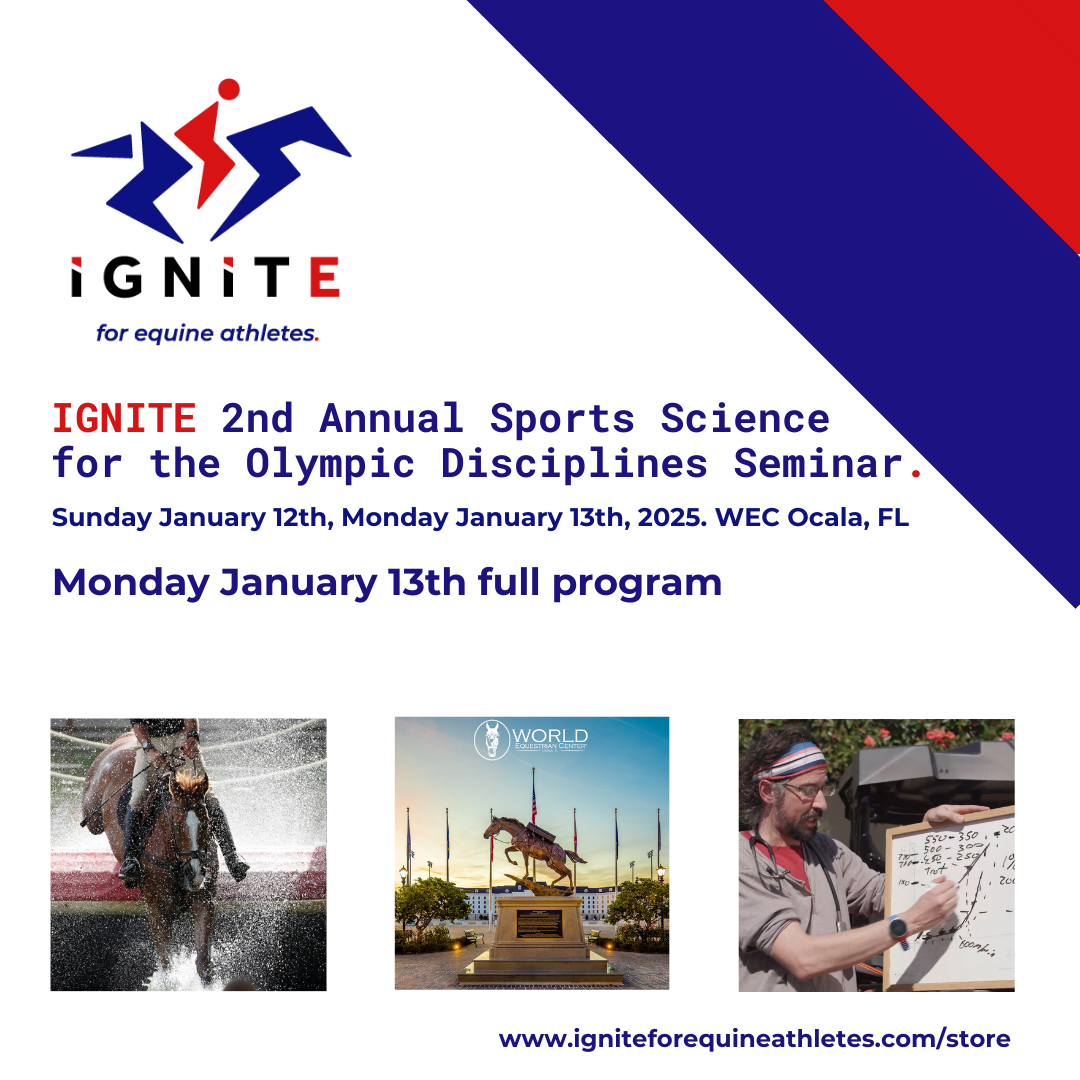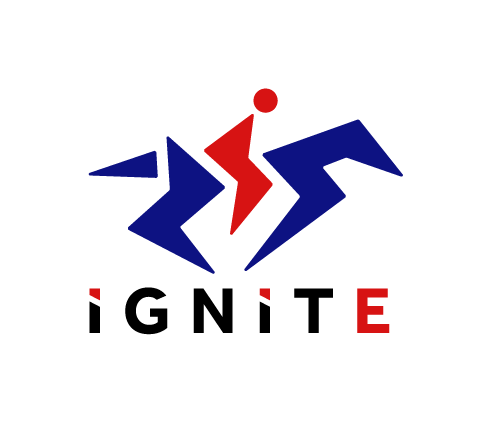 Image 1 of
Image 1 of


IGNITE 2nd Annual Sports Science for the Olympic Disciplines Seminar. MONDAY REGISTRATION
Sports science is the application of scientific knowledge to sports, achieved through branches of science including biomechanics, physiology and psychology, with the aims of both maximizing performance and reducing injury. Sports science has been critical for developing training programs that enhance athletic potential across a variety of human sports, and this knowledge is increasingly utilized by top athletes in the three Olympic equestrian disciplines.
During this two-day seminar, thought-leaders from both equestrian and human-centric sports will gather to discuss how to use technology to enhance precision within training programs, how athletes acquire skills, how exercise impacts the cardiovascular and musculoskeletal systems in human and equine athletes, and how to manage chronic injuries, among other topics.
Sports science is the application of scientific knowledge to sports, achieved through branches of science including biomechanics, physiology and psychology, with the aims of both maximizing performance and reducing injury. Sports science has been critical for developing training programs that enhance athletic potential across a variety of human sports, and this knowledge is increasingly utilized by top athletes in the three Olympic equestrian disciplines.
During this two-day seminar, thought-leaders from both equestrian and human-centric sports will gather to discuss how to use technology to enhance precision within training programs, how athletes acquire skills, how exercise impacts the cardiovascular and musculoskeletal systems in human and equine athletes, and how to manage chronic injuries, among other topics.
Sports science is the application of scientific knowledge to sports, achieved through branches of science including biomechanics, physiology and psychology, with the aims of both maximizing performance and reducing injury. Sports science has been critical for developing training programs that enhance athletic potential across a variety of human sports, and this knowledge is increasingly utilized by top athletes in the three Olympic equestrian disciplines.
During this two-day seminar, thought-leaders from both equestrian and human-centric sports will gather to discuss how to use technology to enhance precision within training programs, how athletes acquire skills, how exercise impacts the cardiovascular and musculoskeletal systems in human and equine athletes, and how to manage chronic injuries, among other topics.
The event will include:
sessions designed to give riders, trainers, grooms, veterinarians, farriers, therapists, and other support staff the tools and knowledge to maximize training benefits (for both horses and riders)
panel discussions where members of the audience can ask our experts questions and gain insight into their approaches to training and athlete management
interactive networking opportunities
group activities aimed at identifying best practices for incorporating technology into competition stables
Outputs:
Group Activities – together we will work to share ideas on how best to incorporate monitoring to enhance performance and mitigate injury risk in the stable. Experts will circulate through the room and interact with attendees to brainstorm new approaches as well as problem solve current challenges to horse management.
Media – writers from leading publications, as well as those involved in other digital media outlets, will be invited and encouraged to create content related to what they learn during the event. This aggressive knowledge translation campaign will ensure that they wider community, and not just those who travel to Ocala, can benefit from the information shared throughout the meeting.
Generation of a Video Library – talks will be filmed and be placed in an online video library for future consumption. Again, this ensures that the resources invested in making this one-day event a success will have maximum impact, not just in Florida but around the globe.
